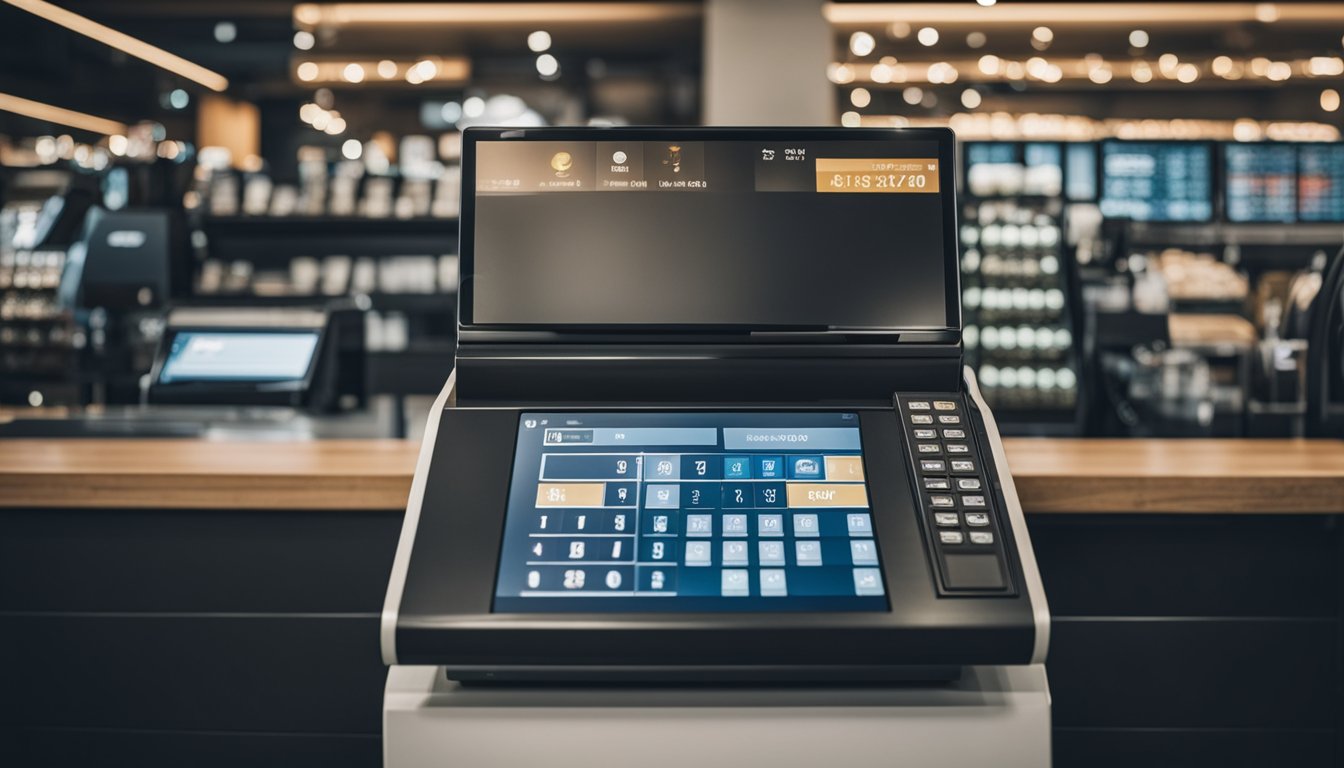
Create Custom PointofSale System with Custom Software Development A Comprehensive Guide
As a business owner, you understand the importance of having a reliable point-of-sale (POS) system to streamline your operations and improve customer experience. While there are many off-the-shelf POS software solutions available in the market, they
As a business owner, you understand the importance of having a reliable point-of-sale (POS) system to streamline your operations and improve customer experience. While there are many off-the-shelf POS software solutions available in the market, they may not always meet your unique business requirements. This is where custom software development comes in. By building a custom POS system tailored to your specific needs, you can achieve greater efficiency, flexibility, and control over your operations.

Building a custom POS system may seem daunting, but it can be a worthwhile investment in the long run. With custom software development, you have the freedom to choose the features and functionalities that matter most to your business. Whether you need inventory management, financial reporting, or eCommerce integrations, a custom POS system can be designed to meet your specific needs. Additionally, custom software development allows for greater scalability and adaptability, so your POS system can grow and evolve with your business.
Key Takeaways
- A custom POS system can offer greater efficiency, flexibility, and control over your business operations.
- With custom software development, you can choose the features and functionalities that matter most to your business.
- Custom POS systems are scalable and adaptable, allowing them to grow and evolve with your business.
Building a Custom POS System
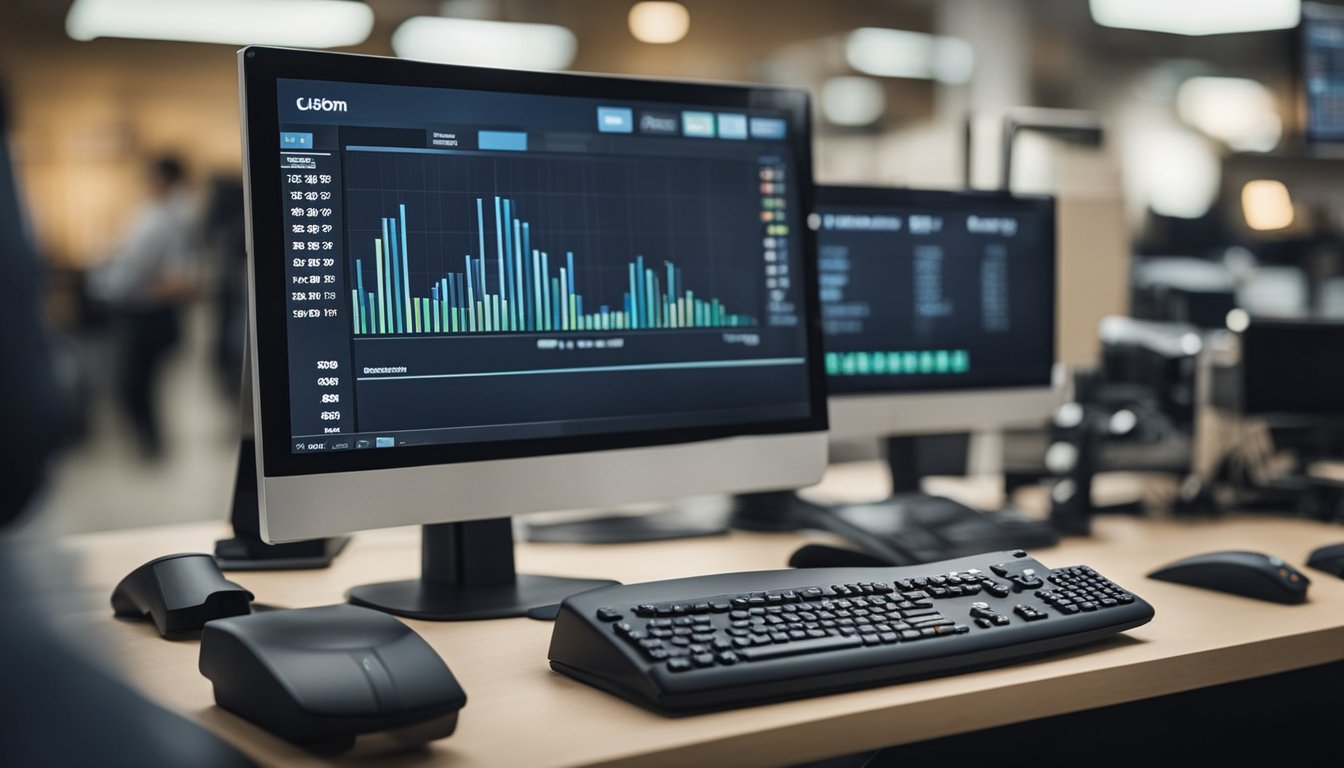
As a custom software developer, I know that building a custom POS system can be a great way to automate and simplify your business operations. With a custom POS system, you can build a solution that is tailored to your specific business needs and requirements. In this section, I will cover the hardware and software requirements for building a custom POS system, as well as integration and compatibility considerations.
Hardware and Software Requirements
When building a custom POS system, it is important to consider the hardware and software requirements. Depending on your business needs, you may need to rent, buy, or automate certain hardware components such as barcode scanners, cash drawers, card readers, scales, and receipt printers. You will also need to choose the right software components, such as on-premise or cloud-based POS solutions, mobile POS, online ordering, and more.
One of the key advantages of building a custom POS system is the flexibility it provides. You can choose the hardware and software components that best meet your needs, and you can customize the system to fit your unique business requirements. This can help you save space, reduce costs, and improve efficiency.
Integration and Compatibility
Another important consideration when building a custom POS system is integration and compatibility. You will need to ensure that your hardware and software components work together seamlessly, and that they are compatible with other systems you may be using, such as inventory management, CRM, and accounting software.
To ensure smooth integration and compatibility, it is important to choose hardware and software components that are designed to work together. You may also need to work with a custom software developer to build custom integrations and ensure that all systems are working together as expected.
Overall, building a custom POS system can be a great way to simplify and automate your business operations. By choosing the right hardware and software components and ensuring smooth integration and compatibility, you can build a solution that is tailored to your specific business needs and requirements.
Features and Functionalities
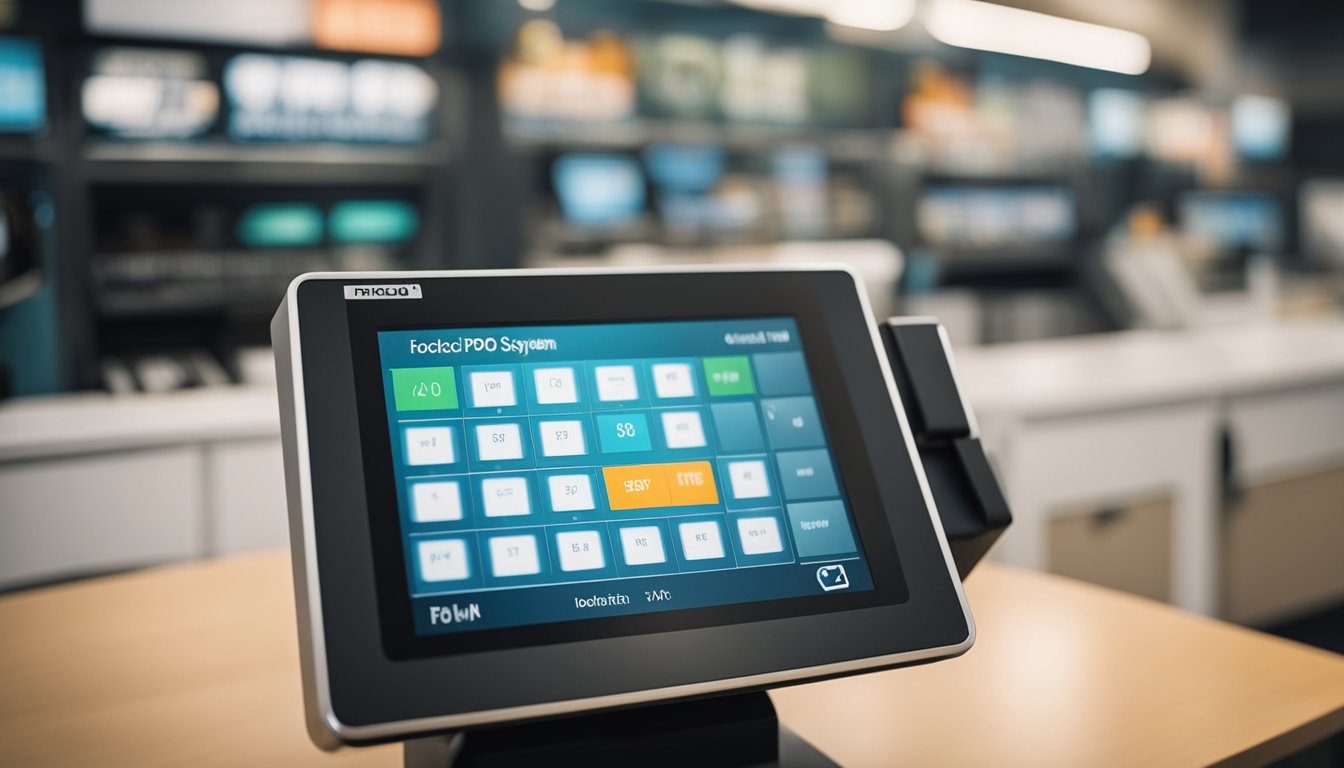
As a custom software development company, we understand the importance of creating a point-of-sale (POS) system that meets the unique needs of your business. Our team of experts can create a custom POS system that includes the following features and functionalities.
Sales and Inventory Management
Our custom POS system includes robust sales and inventory management features. You can easily track sales data, manage inventory, and generate sales reports. This feature allows you to keep track of stock levels, set reorder points, and receive alerts when inventory levels are low. With our POS system, you can easily manage your retail or service business.
Customer and Employee Management
Our custom POS system includes customer and employee management features that allow you to keep track of customer data, manage loyalty programs, and track employee attendance. You can easily create customer profiles, track customer purchases, and manage customer relations. Our employee management features allow you to manage staff schedules, track attendance, and monitor performance.
Additional POS Features
In addition to the above features, our custom POS system includes a range of advanced features that can help you streamline your business. Our system includes features such as promotions, discounts, and gift cards. Our self-service kiosks and table management features allow you to manage orders and checkout quickly and efficiently. Our menu management features allow you to easily update menus and order triggers.
Our custom POS system is designed to meet the unique needs of your business. With our system, you can manage inventory, track sales data, and manage customer and employee data. Our range of advanced features can help you streamline your business and improve customer satisfaction.
Security and Support
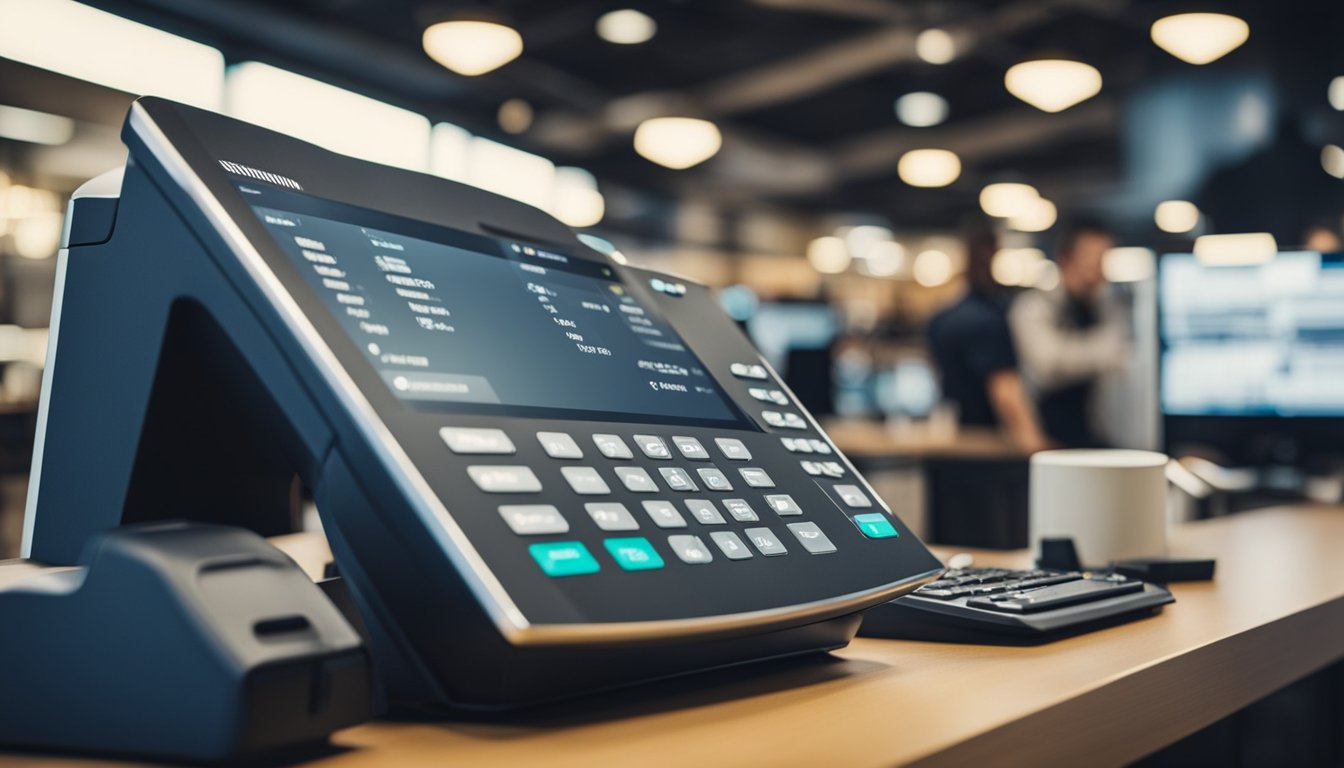
When it comes to creating a custom point-of-sale system, security and support are two essential factors to consider. As a business owner, you want to ensure that your system is secure and reliable, and that you have access to technical support when you need it.
Data Security and Privacy
Data security is critical for any business that handles sensitive information, such as payment card data. As a result, it is essential to ensure that your custom point-of-sale system is secure and meets the Payment Card Industry Data Security Standard (PCI DSS).
One way to ensure data security is to work with a trusted vendor that specializes in custom software development. They can help you design a system that is secure and meets industry standards. Additionally, you can implement various security measures, such as encryption and firewalls, to protect your data.
Privacy is also an important consideration. You want to ensure that your customers' personal information is kept private and secure. By implementing privacy policies and procedures, you can help protect your customers' data and build trust with them.
Technical Support and Maintenance
Technical support and maintenance are essential for any custom point-of-sale system. You want to ensure that your system is reliable and that you have access to support when you need it.
Working with a reliable vendor can help ensure that you have access to technical support and maintenance services. They can provide ongoing support and maintenance to ensure that your system is up-to-date and running smoothly.
Additionally, you can implement various tools and procedures to help you manage your system. For example, you can use data analytics to track sales and identify areas for improvement. You can also use billing and accounting tools to help you manage your finances.
In summary, when creating a custom point-of-sale system, it is essential to consider security and support. By implementing data security and privacy measures and working with a reliable vendor, you can ensure that your system is secure and that you have access to technical support when you need it.
Frequently Asked Questions
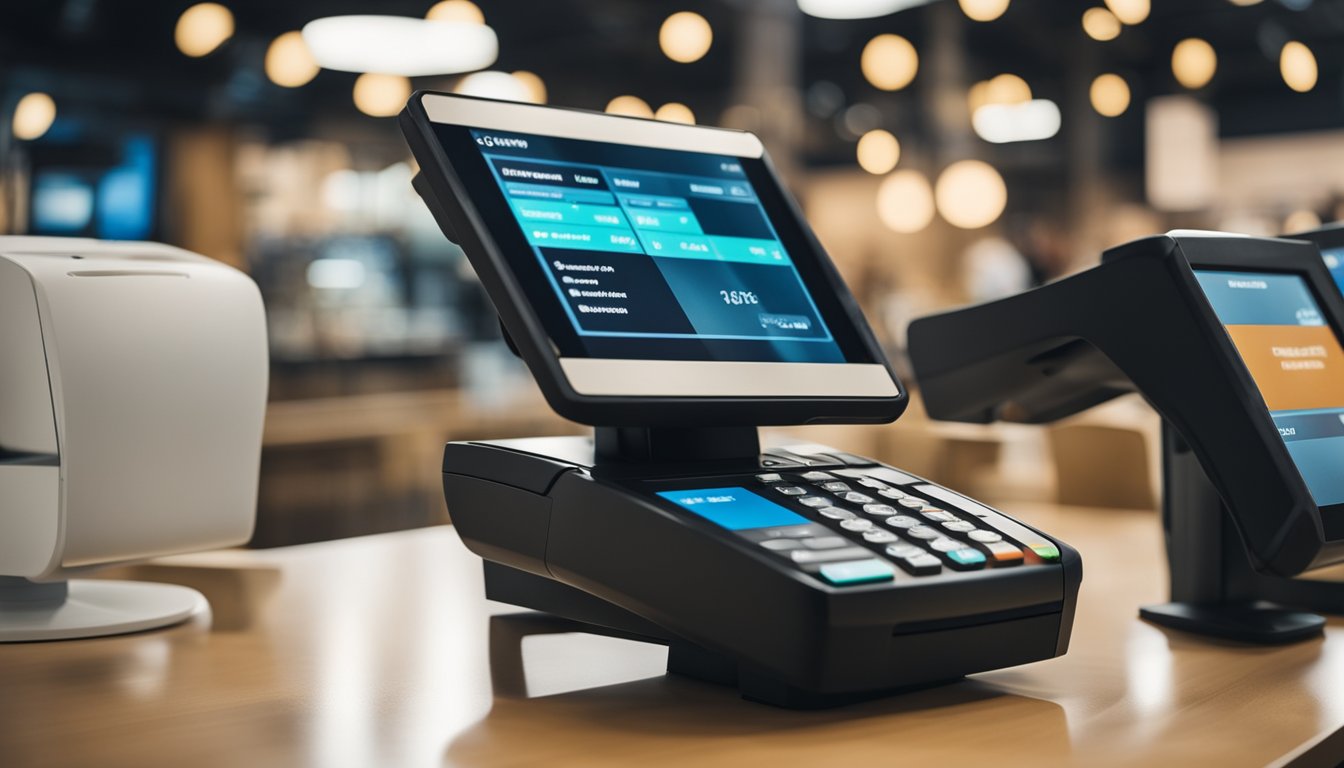
What are the key components of a custom point-of-sale system?
A custom point-of-sale (POS) system typically consists of hardware components such as a cash register, barcode scanner, receipt printer, and credit card reader, as well as software components that manage inventory, sales, and customer data. The software can be customized to meet the specific needs of a business, including integrating with other systems and providing real-time data analytics.
How can custom software development enhance a point-of-sale system?
Custom software development can enhance a point-of-sale system by providing tailored solutions that meet the unique needs of a business. Custom software can improve the efficiency of inventory management, reduce manual labor, and streamline the sales process. Additionally, custom software can integrate with other systems, such as accounting software or customer relationship management (CRM) systems, to provide a comprehensive solution that meets all business needs.
What are the benefits of designing a custom POS system?
Designing a custom POS system offers several benefits, including increased efficiency, improved accuracy, and reduced costs. A custom POS system can be designed to meet the specific needs of a business, allowing for increased efficiency and accuracy in inventory management, sales tracking, and customer data analysis. Additionally, a custom POS system can reduce costs by eliminating the need for manual labor and streamlining the sales process.
What factors affect the cost of a custom POS system?
The cost of a custom POS system can vary depending on several factors, including the complexity of the system, the number of hardware components required, and the level of customization needed. Other factors that can affect cost include the number of users, the level of support required, and the time required for development and implementation.
What are the best practices for POS system architecture?
When designing a custom POS system, it is important to follow best practices for system architecture. This includes designing a system that is scalable, secure, and reliable. Additionally, the system should be designed to integrate with other systems, such as accounting software or CRM systems, to provide a comprehensive solution that meets all business needs.
What are the most important features of a custom POS system?
The most important features of a custom POS system include inventory management, sales tracking, and customer data analysis. Additionally, the system should be designed to integrate with other systems, such as accounting software or CRM systems, to provide a comprehensive solution that meets all business needs. Other important features may include real-time data analytics, mobile compatibility, and customizable reporting capabilities.




